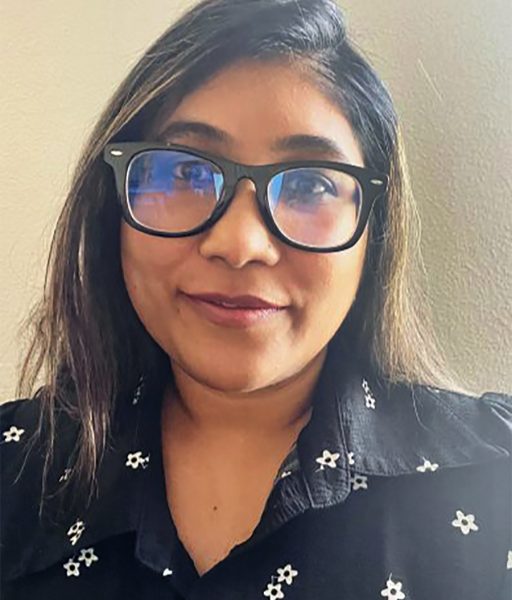
by Graduate School
The Graduate School proudly announces the recipients of the doctoral Finishing Fellowships for spring 2024. Congratulations to all nominees and recipients!
- Utkarsh Shailesh Chaudhari — Chemical Engineering
- Siyuan Fang — Environmental Engineering
- Michelle C. Kelly — Biological Sciences
- Elizabeth Lehman — Applied Cognitive Science and Human Factors
- Anne Inger Mortvedt — Applied Cognitive Science and Human Factors
- Sadia Nowrin — Computer Science
- Shashank Pathrudkar — Mechanical Engineering-Engineering Mechanics
- Abhishek Patil — Mechanical Engineering-Engineering Mechanics
- Catherine Rono — Biological Sciences
- Kyle J. Schwiebert — Mathematical Sciences
- Basanti Timalsina — Rhetoric, Theory, and Culture
- Yipeng Yin — Chemistry
For more details about recipients, see their student profiles on the Graduate School Newsblog.
Sadia Nowrin’s Bio
From the Graduate School news blog
Starting my academic journey at Michigan Technological University in 2018, I had the privilege of guiding two first-year computer science students on a mini project called “Technology Assisted Conversation” under the supervision of Dr. Keith Vertanen. I was fascinated by the transformative impact of technology in empowering individuals with disabilities. Little did I know this initial endeavor would transform into the core of my dissertation “Programming by Voice.”
In the realm of software development, where text-intensive tasks are inevitable, programmers often face challenges due to long hours of typing. Individuals with motor impairments may encounter difficulties typing, while even able-bodied practitioners may develop conditions like Repetitive Strain Injury. My doctoral dissertation centers on empowering programmers facing such accessibility challenges through voice-enabled programming. This involves applying state-of-the-art natural language processing techniques and training large language models to adapt to the diverse speaking styles of programmers. Beside my dissertation work, I work as a graduate research Assistant on the NSF project, “Improving Mobile Device Input for Users Who are Blind or Low Vision” where I explore how to improve the ability of visually impaired individuals to detect speech recognition errors without relying on visual feedback. I am excited about exploring new possibilities and making meaningful contributions in the field of accessibility, acknowledging its significance as a necessity rather than a mere recommendation.
I would like to convey my profound gratitude to Dr. Keith Vertanen, for his invaluable guidance and mentorship, especially considering my transition from a distinctly different research field. My deepest appreciation extends to the Graduate School and the Dean’s Advisory Panel for awarding me the Finishing Fellowship, allowing me to focus on completing my dissertation promptly. I am thankful for the support and opportunities provided by Michigan Technological University, shaping not only my academic journey but fostering a collaborative and encouraging community.
About the Finishing Fellowships
The Grad School Finishing Fellowships provide support to PhD candidates who are close to completing their degrees. These fellowships are available through the generosity of alumni and friends of the University. They are intended to recognize outstanding PhD candidates who are in need of financial support to finish their degrees and are also contributing to the attainment of goals outlined in The Michigan Tech Plan. The Graduate School anticipates funding fellowships each semester with full support (minimum stipend + tuition) or partial support depending on the financial need of the student. Students who receive full support through a Finishing Fellowship may not accept any other employment. For example, students cannot be fully supported by a Finishing Fellowship and accept support as a GTA or GRA.